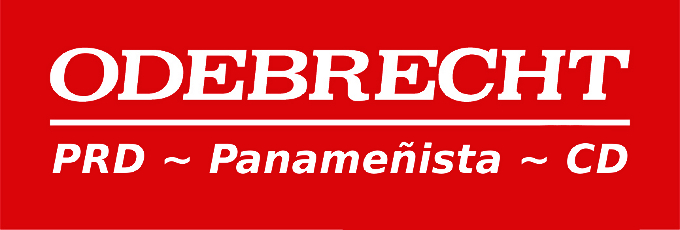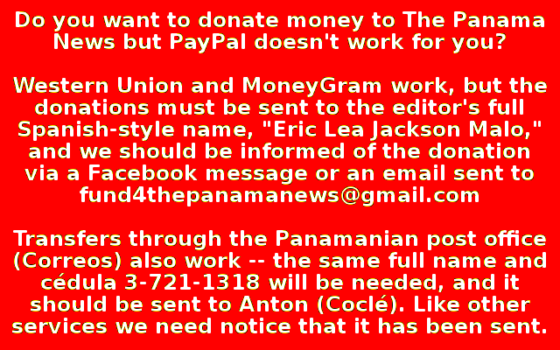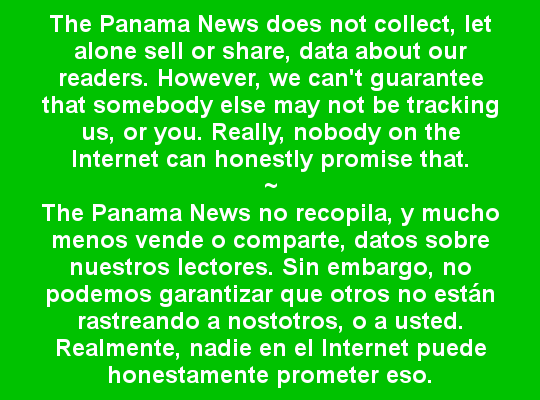
Elite parties chained to the past
by Marco Gandásegui, hijo
In May of 2019 an eighth electoral round will be held, with two major elements at stake that will not be debated among the parties that have alternated in power. One of these is the hegemonic neoliberal economic model that we have had for more than 30 years. The other is the US presence pursuant to treaties, pacts, accords and memoranda.
Between 1984 and 2014, seven general elections were held. Three presidents of the Democratic Revolutionary Party (PRD), three from the Panameñista Party and one from Cambio Democrático (CD) were anointed. The electoral alternation deceives, if it leads one to conclude that there is some kind of political stability or continuity. Amdist all this, Panama suffered a US military invasion (1989), foreign military occupation for many years, the transition from a military regime to an oligarchic one and the governments of an incompetent Panamanian elite. All of the leaders, however, did agree on one aspect: the neoliberal economic policy that began with timid “economic adjustments” in the 1980s, followed by the consolidation of deregulation, privatization and flexibilization policies in the 1990s.
The three major parties present in the current National Assembly have already chosen their presidential candidates. So have the Broad Front for Democracy (FAD) and the Alianza. Later the three independent candidates will be defined by the Electoral Tribunal’s interpretation of their petition signatures. Everything indicates that eight candidates will aspire to occupy that chair in the Palacio de Las Garzas. With the exception of the FAD, no political party has a comprehensive platform to govern the country in the 2019-2024 period.
Notwithstanding the failure of the neoliberal economic model, all three major parties insist on keeping it. The propose economic growth based on a deregulated and quasi-monopolistic market.
Panama has a huge source of income, the Panama Canal — tolls represent annual revenues of more than $3 billion. Related activities generate revenues that exceed $6 billion per year. These revenues are the product of the export of services to the world merchant marine. The group or political party that controls power guarantees its management of those revenues coming from abroad.
The neoliberal model serves as a front to monopolize foreign revenues. In the programs of the traditional candidates, there is no mention — not one line — about the strategy that is intended to be applied about making use of these resources to meet the needs of the population. There are two words that have been banned by the three parties that alternate in power. One is the word “Development.” Another is “Plan.” Another word that is frowned upon, but which is sometimes used, is “Nation.” The combination of the three words, “National Development Plan,” is anathema to all Panamanian liberals (neoliberals and conservatives).
Without a plan it is easier to loot the treasury through misgovernment, which translates into the corruption that characterizes the highest circles of the governmental apparatus and the business sector. Recent governments have been very flagrant about their dispossession operations. What is striking is that the three parties will compete again for power despite leaving evidence of their mismanagement of the budget (for 2019 a budget of $23 billion was approved) and with all the corruption corruption cases in the courts.
The would-be winner among the three main party candidates would continue to appoint cabinet specialists to produce bills, decrees and contracts that serve to enrich an elite. The proposals of these candidates would continue to allocate 15 percent of the budget to the payment of an irresponsibly acquired debt.
Investment in the maritime sector — ports, shipyards, fishing — is not contemplated even though this is supposed to be the strength of the country’s economy. On the other hand, the dispossession of the lands held by the farmers and fishers who live on the seashores, be they on the Caribbean or the Gulf of Panama, is promoted.
In foreign economic relations the USA has shown itself not to be a reliable partner. China has shown a special interest in Panama. The Panamanian government and elites are interested in receiving what the Chinese bring. But they are only interested in receiving “commissions,” without proposing any national development plan.
The three major party candidates — some more, some less — are all associated with the past. None of them show any alternatives for the future.












